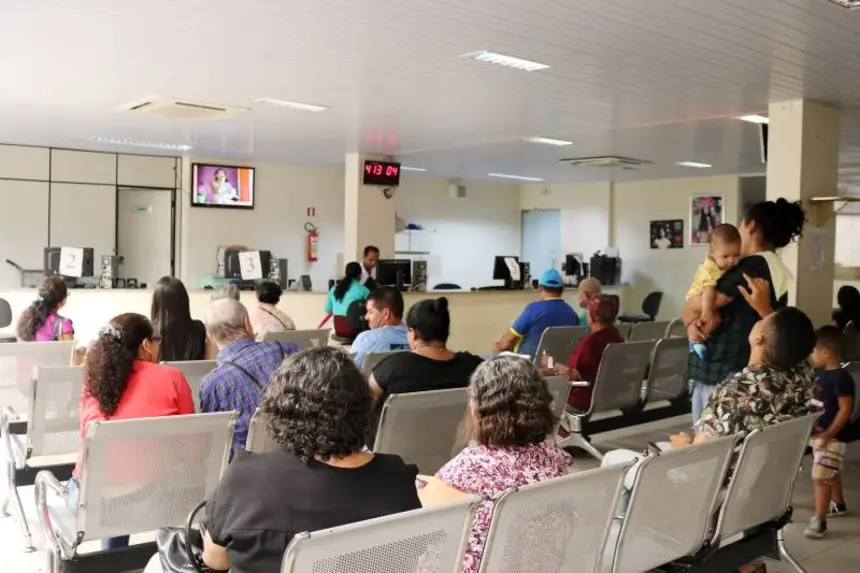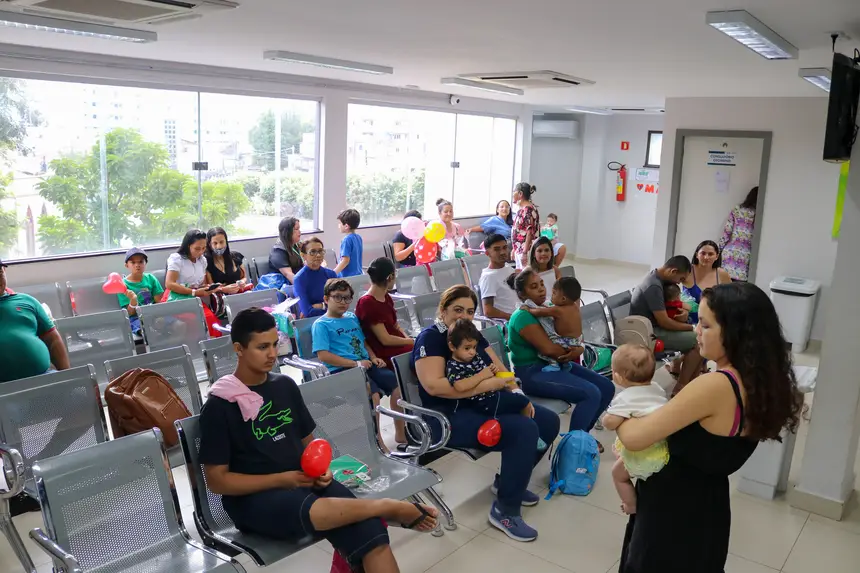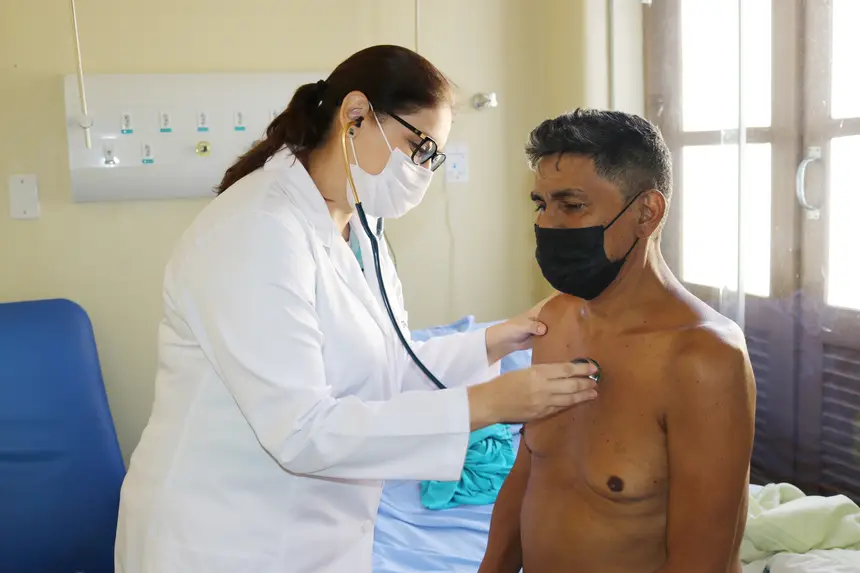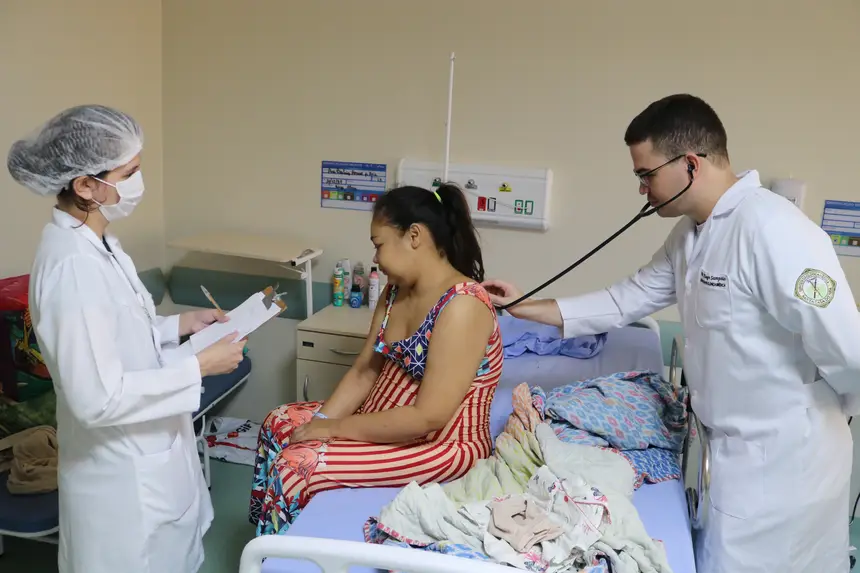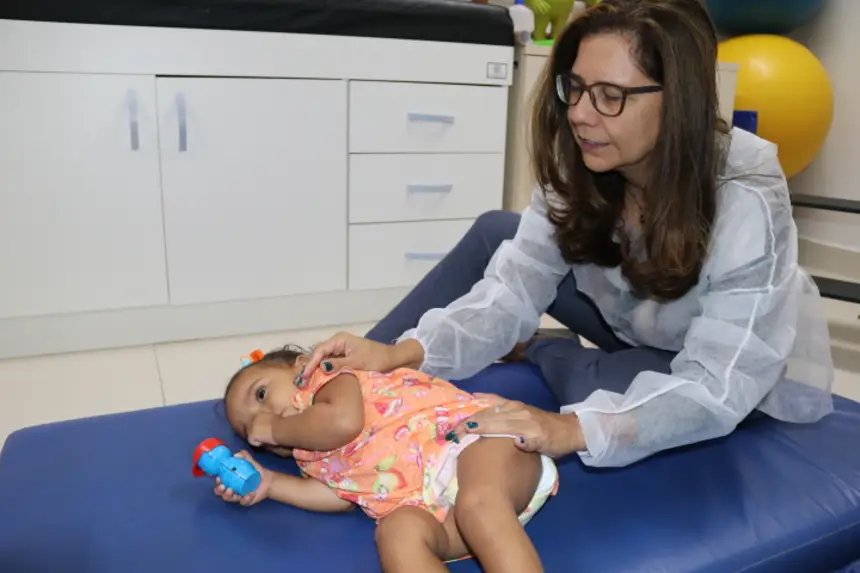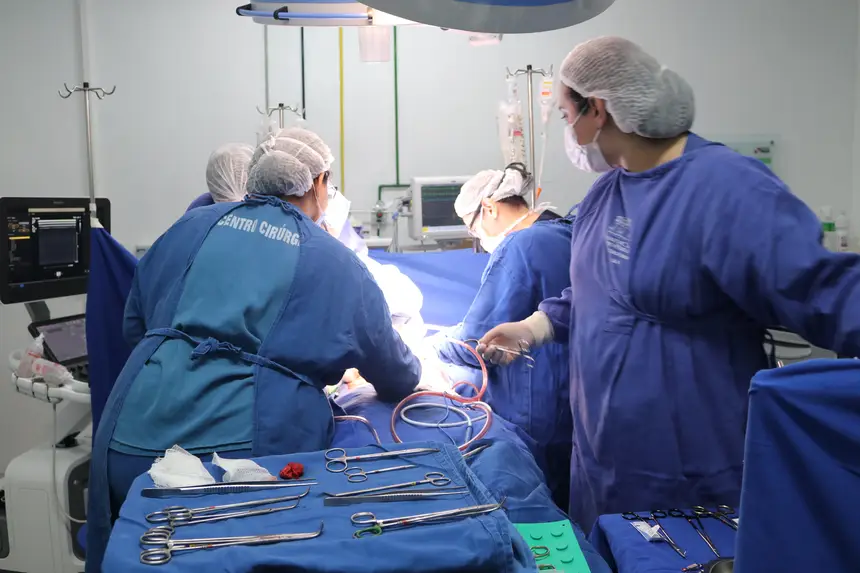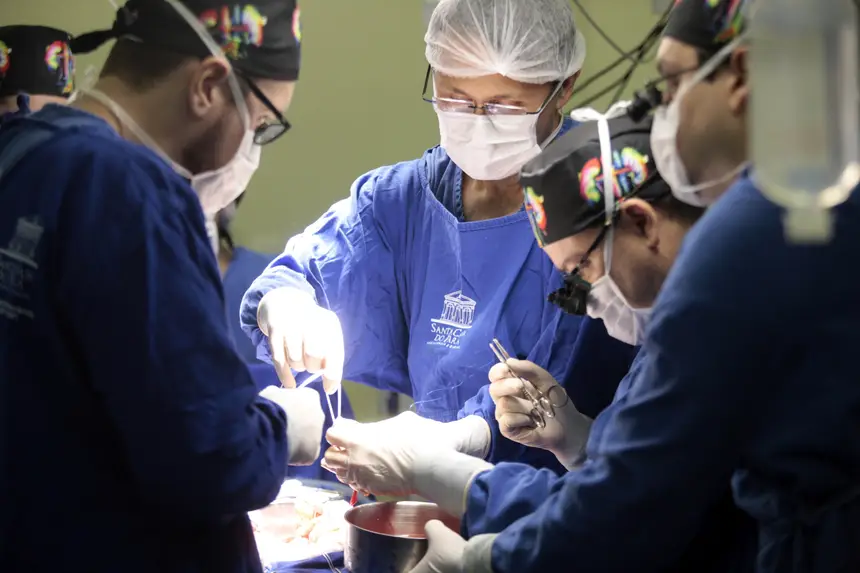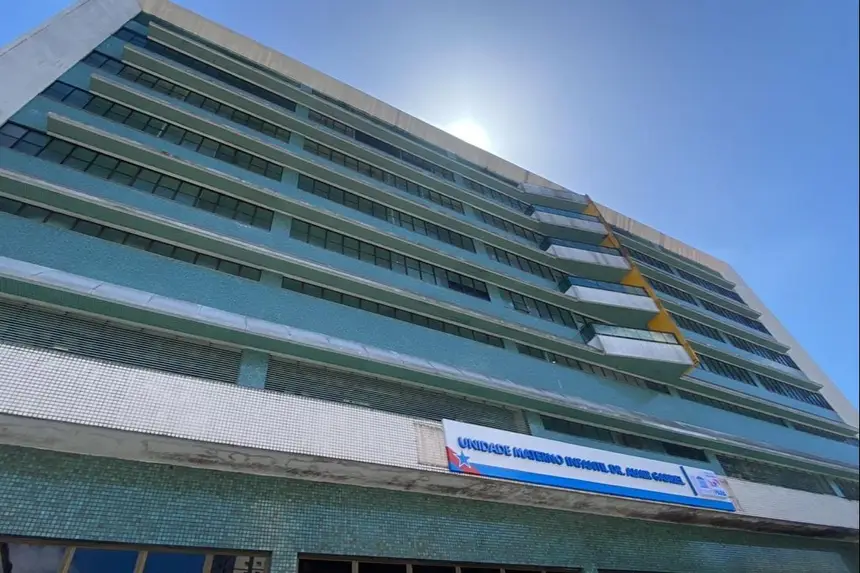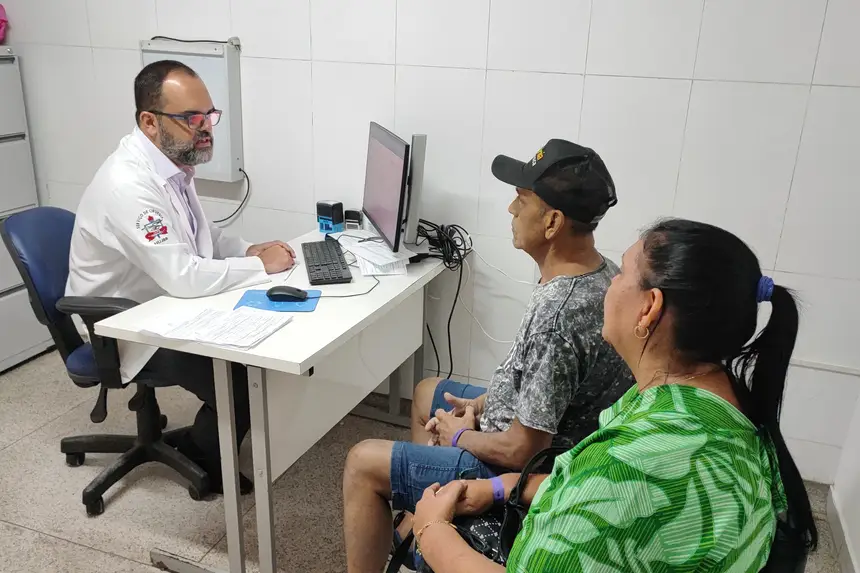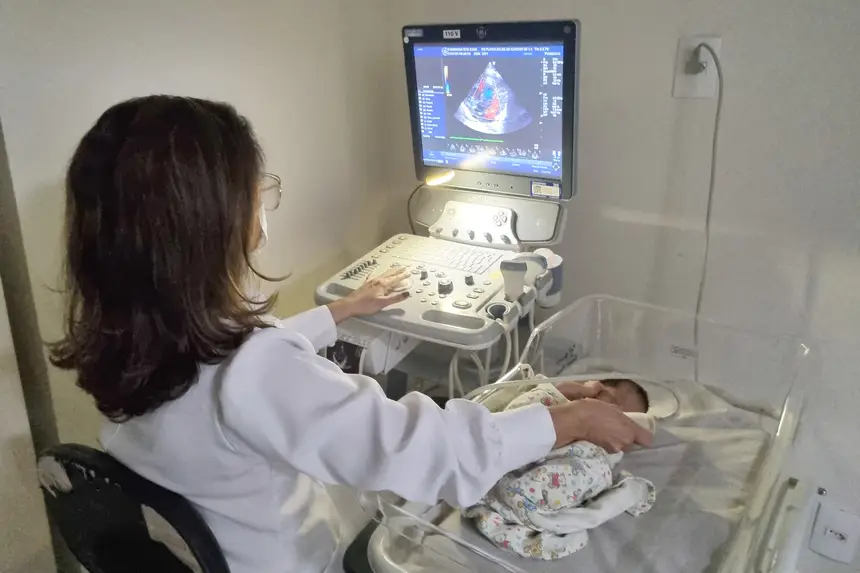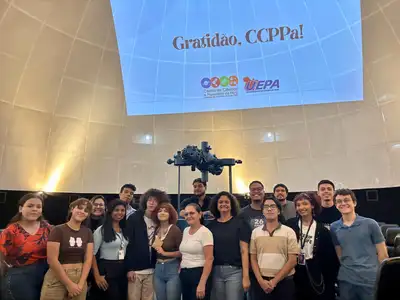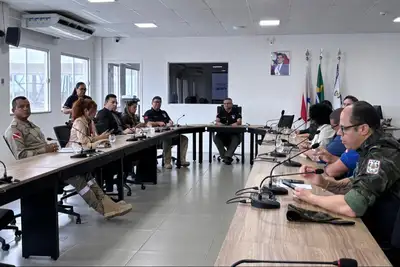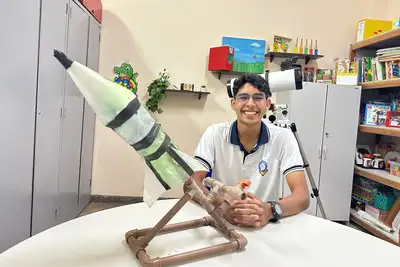Santa Casa Foundation reinforces the importance of SUS in serving the institution's users
Thousands of patients receive annually the qualified care of the Unified Health System offered by Santa Casa do Pará
The Santa Casa, which is a reference hospital for maternal and child care, 100% SUS, has highly qualified and engaged multidisciplinary teams to provide humanized assistance to patients. In 2024, the institution made significant progress in care. There were 1,271,105 services and procedures in various sectors of the hospital and outpatient clinics, reflecting the institutional capacity to expand user access while optimizing resources.
During this period, 36,495 women were treated in the Obstetric Emergency and Urgency area; the hospital admitted 24,143 patients. There were 9,274 births (3,595 normal and 5,679 cesarean). The surgical area of Santa Casa performed 6,130 surgeries (Adult - 3,061 and Pediatric - 3,069) and the Ambulatory Complex (Women's, Pediatric, Premature, Surgery, Liver, Clinical, and Cleft Palate Clinics) conducted 102,727 consultations and performed 50,098 outpatient procedures.
Jorgeana Rios, mother of Lua, who is treated at the pediatric outpatient clinic, highlighted the humanized and qualified care that she and her daughter received since her pregnancy. "I arrived at Santa Casa pregnant with Lua at 6 months. I was very scared, but here I was surprised by the quality of care from all the professionals. She was born premature and also needed to be hospitalized for a while, and today she is still very well cared for in the outpatient clinic and in all services."
Elineth Valente, coordinator of the Ambulatory Complex of the Santa Casa Foundation, reinforces the importance of the Unified Health System for the thousands of users who seek Santa Casa do Pará. "SUS is a national heritage. The largest government health assistance program in the world. Defending SUS is also defending security and dignity, especially for those who most need social support. But being universal, it supports citizens of any social class with services such as vaccination, organ transplants, and sanitary surveillance."
"The services offered in the Santa Casa outpatient clinics are 100% SUS. And we have high-complexity specialties being offered. Among them, the follow-up in High-Risk Prenatal, as a reference in quality in the northern region. As well as adult and pediatric surgeries, liver transplants, and rheumatology among many others. Another highlight in our outpatient clinics is the fact that it serves as a training ground, as a school-outpatient clinic for students and residents. Future professionals who, in addition to high technical performance, receive principles such as the defense of SUS, as well as humanization and management," highlights Elineth.
The president of the Santa Casa Foundation of Pará, Bruno Carmona, who has been managing the institution since May 2019, emphasizes that the merit of the results in serving the hospital's users belongs to the work team. "Currently, there are approximately 3,000 servers, and the institution, which is now 375 years old, will continue for many years into the future."
"Maintaining this hospital with 3,000 servers, 515 beds, being the largest public maternity hospital in Northern Brazil, one of the largest public maternity hospitals in Latin America, with ONA 3 accreditation. A 100% SUS hospital. A public hospital by excellence. And, being evidently public, it is subject to all the rules of hiring and procurement and expense ordering of the public power, which transfers these resources from the tax of all of us (mine and yours)," emphasizes the manager.
Transplants - In 2024, Santa Casa strengthened the state transplant network, with the expansion of the pediatric kidney transplant and adult liver transplant program. During the year, 26 transplants were performed, including 14 pediatric kidney transplants and 12 adult liver transplants, expanding access to these essential procedures for critically ill patients.
In addition, the institution conducted 373 pre and post-transplant consultations and promoted 4,486 actions related to organ donation and procurement, including training, active search visits, interviews with family members, and follow-up on donations.
The partnership between the Santa Casa Foundation, Albert Einstein Hospital in São Paulo, and the Ministry of Health through the Institutional Development Support Program of the Unified Health System (Proadi-SUS), resulted in a project aimed at monitoring the post-surgical care of patients undergoing transplants with improvements in the rehabilitation process and the quality of life of the patient.
Rafael Garcia, the technical responsible physician for the liver transplant team, reports that the hepatic service area of Santa Casa, which has been operating since 2012, serves patients from all over Pará and some neighboring states, mainly Amapá, as well as Maranhão, Amazonas, and Tocantins. "We have the only medical residency in hepatology in the northern region. We currently have four hepatologists trained, who are now established here in the region. It is not someone who comes, graduates, and leaves the region. We were the first public hospital to perform a liver transplant in the State of Pará. We have already performed transplants in adolescents and even adults aged 67, mostly men."
Sylvia Morgado, from the coordination of the Solid Organ Transplant Program at Albert Einstein Hospital linked to Proadi-SUS (Support and Development Program of the Health System), reinforces the work linked to the national transplant system. "Currently, we have an assistance project, which is management and support for the return of transplanted patients to the network. This partnership with Proadi-SUS has existed since 2009, when this program was actually implemented by the Ministry of Health. Since then, Einstein has several branches of projects: in education, in research, in technology procurement, and this assistance that is for the transplant area."
For Norma Assunção, Technical Assistance Director of the Santa Casa Foundation, the work related to liver transplantation, in partnership with Albert Einstein Hospital, impacts post-transplant outpatient care and hospitalization. "The post-discharge support for these patients and, at the same time, absorbing new patients in the same service. And if the project works, it should be applied to other services."
Proadi-SUS - The Institutional Development Support Program of the Unified Health System (Proadi-SUS) is an alliance between reference hospitals in Brazil and the Ministry of Health. Created in 2009, its purpose is to support and improve SUS through human resources training projects, research, evaluation and incorporation of technologies, management, and specialized assistance demanded by the Ministry of Health.
Importance of SUS - A publication from the Gov Agency, via the Ministry of Health, reports that the Unified Health System (SUS), created by the 1988 Constitution and formalized in 1990, represents one of the greatest achievements of Brazil's democracy. With the principles of universality, comprehensiveness, and equity, it ensures that millions of Brazilians have free access to quality health care.
Over the years, SUS has consolidated itself as the largest public health system in the world, serving the entire Brazilian population and becoming an international reference in vaccination, transplants, epidemic control, but mainly in providing comprehensive health care throughout the life cycle, encompassing prevention, sanitary surveillance, primary and specialized assistance, research, and health education.
Principles:
Universalization - Health is a citizenship right of all people, and it is the State's responsibility to ensure this right, with access to actions and services guaranteed to all people, regardless of sex, race, occupation, or other social or personal characteristics.
Equity - The objective of this principle is to reduce inequalities. Although all people have the right to services, they are not equal and therefore have distinct needs. In other words, equity means treating unequally those who are unequal, investing more where the need is greater.
Comprehensiveness - This principle considers people as a whole, addressing all their needs. For this, it is important to integrate actions, including health promotion, disease prevention, treatment, and rehabilitation. Together, the principle of comprehensiveness presupposes the articulation of health with other public policies, to ensure intersectoral action among the different areas that have repercussions on the health and quality of life of individuals.


